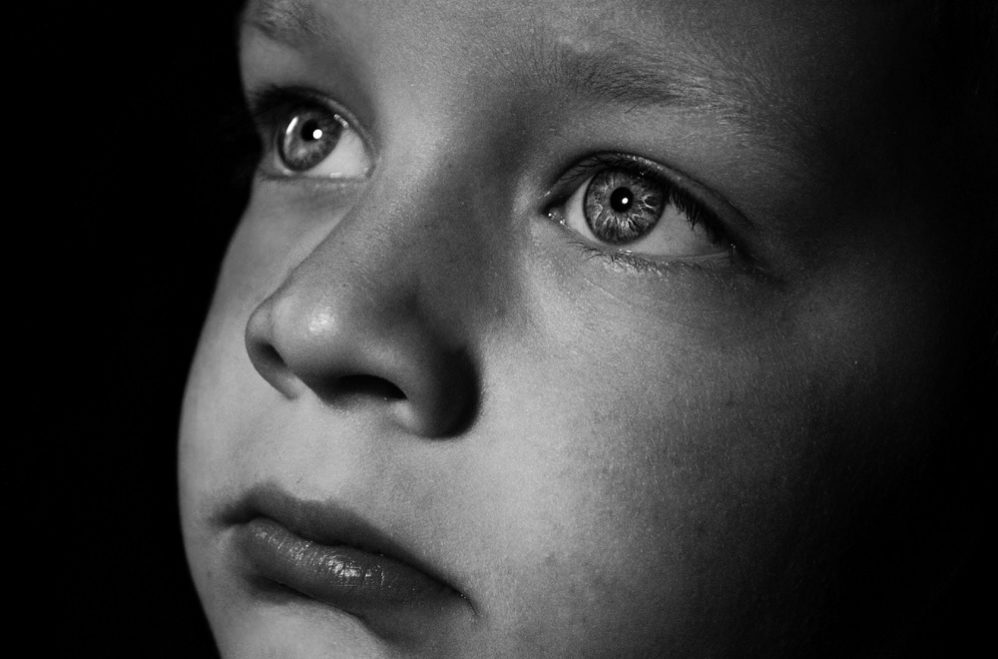Children are increasingly becoming the “play objects” of a godless, selfish society who treat actual living human beings like a “Barbie doll” to play with, clothe and manipulate just as they please. In reality, these “play objects” are real people with limbs, minds, hearts, emotions and feelings. They are created in the image of God as male and female, not as “its” yet to be determined. The case of 7 year old “James” in Texas has captured the attention of many on how a judge and jury can grant permission to destroy the life of a young boy for the aberrant desires of perverted thinking, or rather non-thinking. Children are not like a menu at a restaurant where you choose what you want. — Editor
—-

The havoc that divorce wreaks in a child’s life is mainstage in this tragic case. Most of us children of divorce quickly learn to act one way with mom and another way with dad. We can switch to a different set of rules, diet, family members, bedtime, screen time limits, and political convictions in that 20-minute ride from mom’s house to dad’s.
Unfortunately for little James, the adaptation he had to make went far beyond meat-lover’s pizza at dad’s house and cauliflower crusts at mom’s: it meant losing one of the most sacred aspects of his identity—his maleness. His dad loved him as a boy, so he got to be himself when he was at dad’s house. But mom showered love on the version of James she preferred, the one with the imaginary vagina.
So, as kids are so apt to do, when James was at her house, he conformed to the person his mother loved. This week a jury ruled that James must live like he’s at mom’s permanently, where he can “transition” fully, regardless of the cost to his mental and physical health.
The drugs used in these so-called transgender “treatments” are off-label and 
As with the overwhelming majority of kids who experience gender dysphoria, there’s a 88-98 percent chance that if doctors kept their hands off him, any transgender feelings James is experiencing would resolve on their own. But ideology rules, and if gender politics requires the sacrifice of his little boy’s manhood—and his boyhood—so we can prove ourselves sufficiently “woke,” then fetch the scalpel.
Link Between Biological Separation and Abuse
Beyond the “tale of two households” that set up this court battle, and the 
During her testimony Georgulas stated she is not the biological mother of James or his twin brother Jude. She purchased eggs from a biological stranger. This illuminates a well-known truth in the world of family and parenthood: biological parents are the most connected to, invested in, and protective of their children.
That’s why parental rights are a thing, and why parents—not the government—should have authority over medical decisions and education. It’s one reason biological parents are the two people to whom children have a natural right.
If we were serious about preventing abuse and neglect, we would incentivize biological parents raising their children together in a life-long union. That was the historical function of marriage before it became just one more vehicle of adult fulfillment. Not only do these two adults grant children the biological identity that they crave, but they also maximize child thriving.
For non-biologically related caregivers, the statistics flip. This is why there’s extensive screening and vetting of adoptive parents. While a biological father is usually the safest man in a child’s life, statistically, an unrelated cohabiting male is the most dangerous figure in a child’s life. (Google the words “mother’s boyfriend” and you’ll know what I’m talking about.) It’s true that there are abusive biological fathers and sacrificial step fathers, but those are the exceptions, not the rule.
Unfortunately, it’s not just unrelated men who pose a threat to children. Studies on step-mothers reveal this type of disadvantage is an equal-opportunity occurrence. Three Princeton economists found that statistically, children who live with a stepmother have less health care, less education and less money spent on their food than children raised by their biological mothers. As angry as it makes our “love makes a family” culture, for parenthood, biology matters.
The Fertility Industry Increases Child Abuse Risks
Precisely because they recognize that biology matters to child safety, adoption professionals have established extensive measures to screen out unfit potential parents. I’ve written elsewhere on why adoption supports children’s rights while donor-conception violates children’s rights, but here’s the Spark Notes version: adoption functions as an institution to meet the needs of children, while third-party reproduction functions as a market to meet the desires of adults.
Adoptive parents rightly undergo significant screening and vetting prior to 
The U.S. fertility industry is a veritable wild west where the dollar reigns supreme, regulation is sparse, and tracking outcomes for the child-products are non-existent. 
But when I see headlines about a woman pushing her prepubescent son to undergo experimental and risky “treatments,” I wonder if her biological disconnect has anything to do with it. To be clear, most non-biological parents do not wish their children harm. Most are doing the best they can in less-than-ideal situations. But James’s non-biological parent’s willingness to risk her child’s long-term health for what is likely a temporary emotional struggle contrasts sharply with his biological parent’s desire to protect him from harm.
Human Beings Are Not to Be Bought and Sold

Children are not slaves to be manipulated and used as “play objects” but little people with emotions and feelings that must be cared for and protected.
In addition to the general challenges of being raised by a non-biological parent, children born via sperm or egg donation face a distinct struggle: commodification. The mentality that says “I have a right to a child” even if it means violating the child’s right to be known and loved by their biological parents treats children as commodities from the moment of conception.
The largest study ever conducted on donor-conceived children revealed that donor offspring often worry that sharing their own misgivings about their conception will upset their parents. It also found that nearly half of donor offspring are disturbed that their conception involved a financial transaction. Third-party reproduction begins with the premise that the child exists for the adult, not the other way around.
Even when you’re not talking about a child rejecting his gender to satisfy his mommy, donor-conceived children often struggle with feeling like they were made solely to satisfy their parents desires. Alana Newman writes, “I knew from an early age that I was purchased and selected from essentially a catalog. I knew that my blonde hair and blue eyes was somehow valued above other colorations… I always knew that I was purchased and created precisely to make her happy, that was my raison d’etre.”
“My mom paid thousands of dollars for my creation,” writes another donor-conceived child, “so for me to just tell her that I want to know where half of my DNA has originated, for me to tell her that I want to look at the man that is my biological father in the eyes, for me to want more than just her in my life, it’s wrong. She spent so much money because she knew that a child of her own would make her happiest, but how happy can an unhappy child make her?”
“…being ‘wanted’ can sometimes feel like a curse, like I was created to make you happy, my rights be damned. I’d be lying if I said I never felt commodified,” says Bethany.
Is it any surprise that a woman who expected her child to conform to the family she wanted despite injury to his natural rights also believes that his sex should conform to her ideological bent, despite injury to his natural body? Both stem from the same mentality: “This child exists for my fulfillment.”
On Thursday the judge will rule on James’s case. We can only hope that she has more respect for this child’s natural rights and natural body than his mother does.

By Katy Faust is the founder and director of the children’s rights organization Them Before Us and the Washington state leader of CanaVox. She is married and the mother of four children, the youngest of whom is adopted from China. You can follow her on Twitter @Advo_Katy.



 RSS - Posts
RSS - Posts